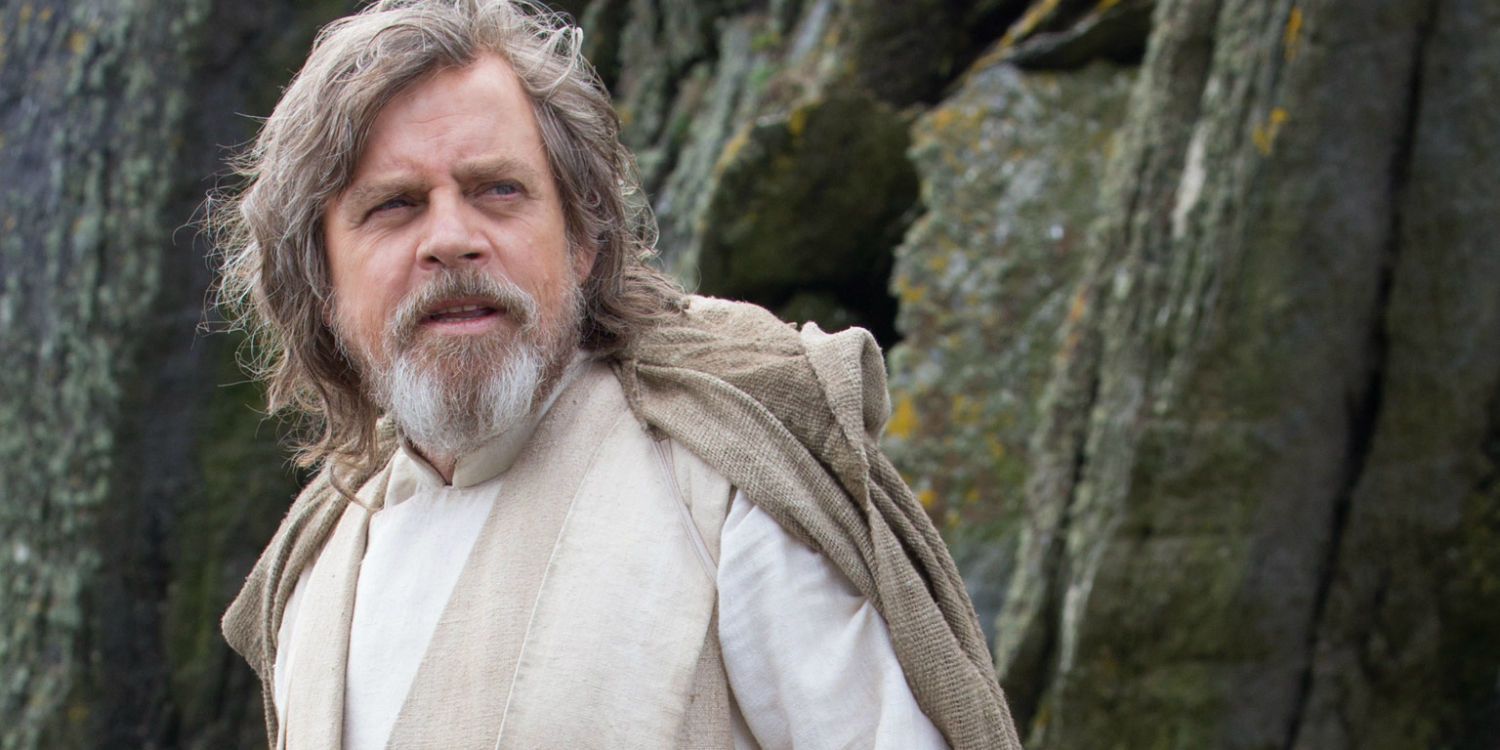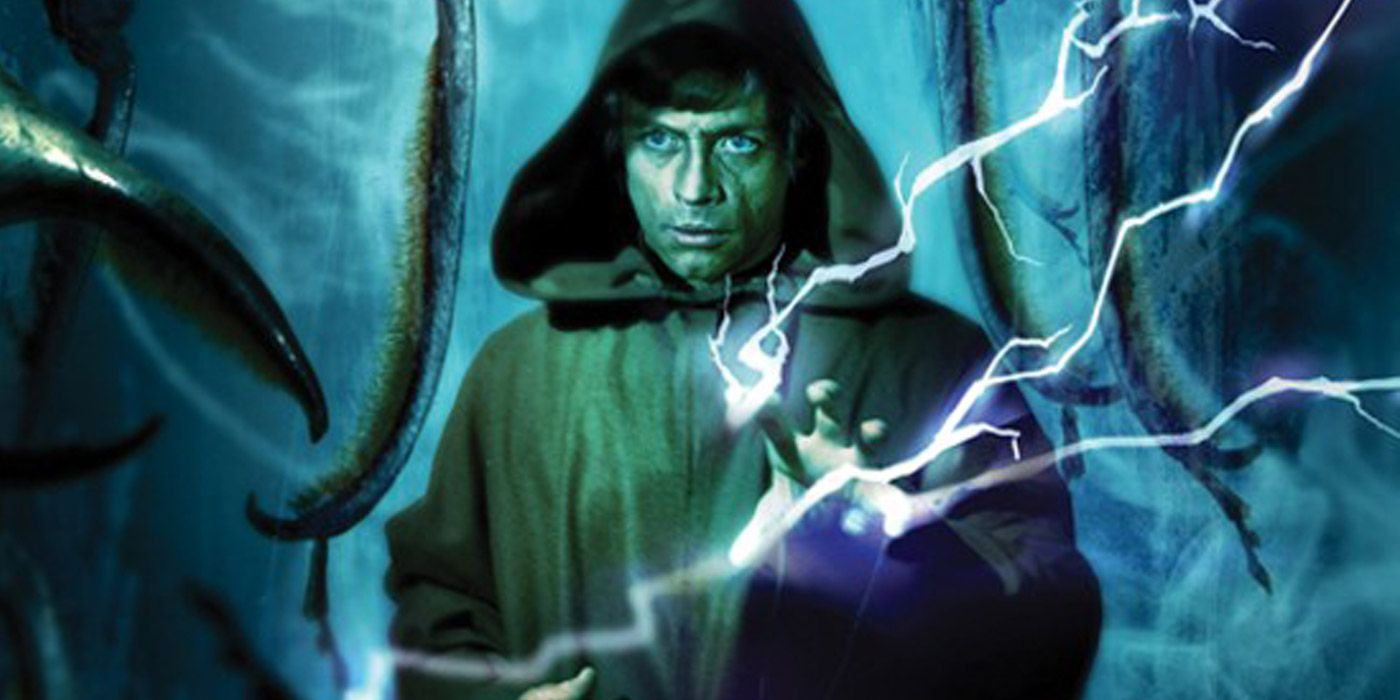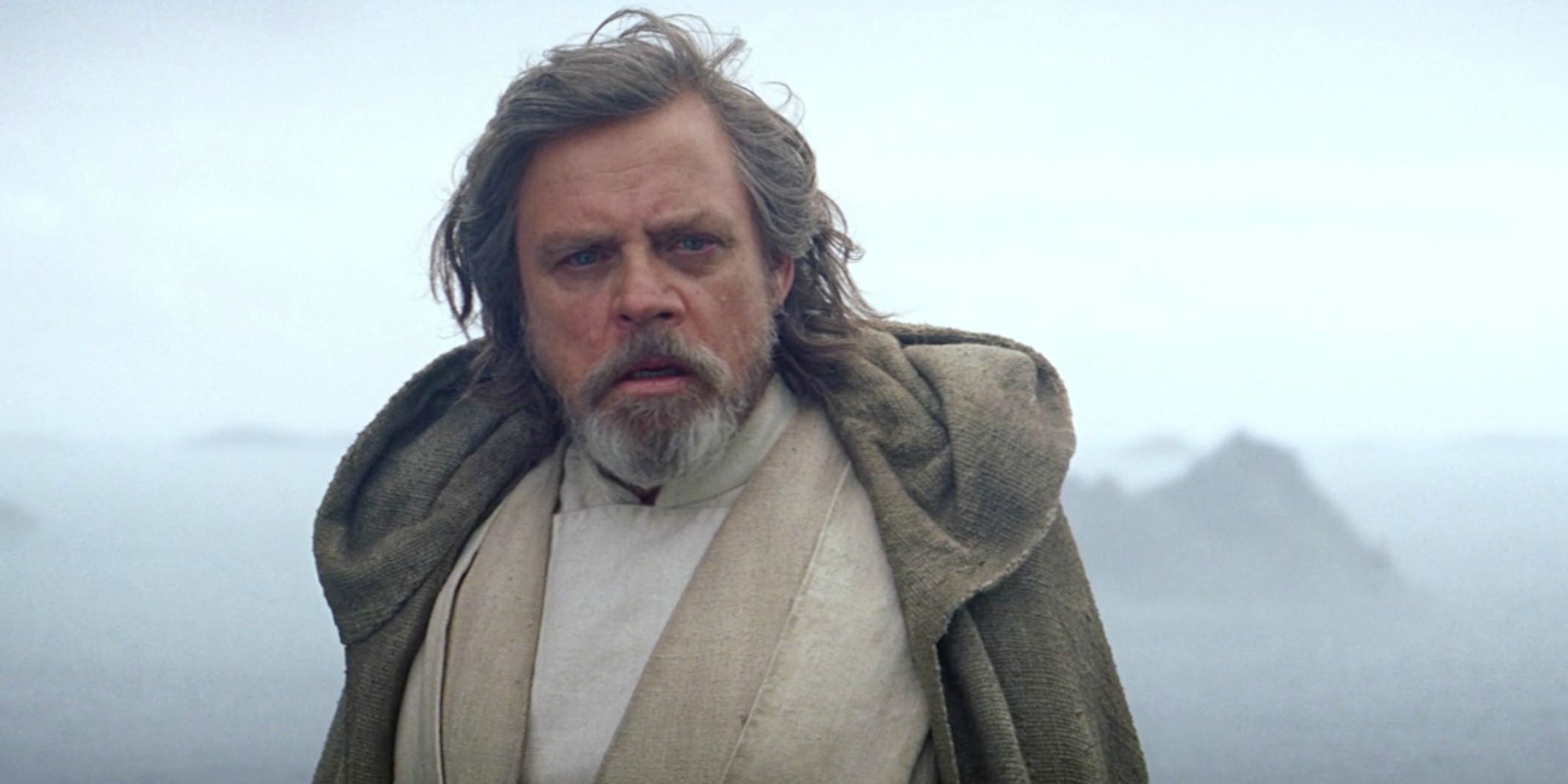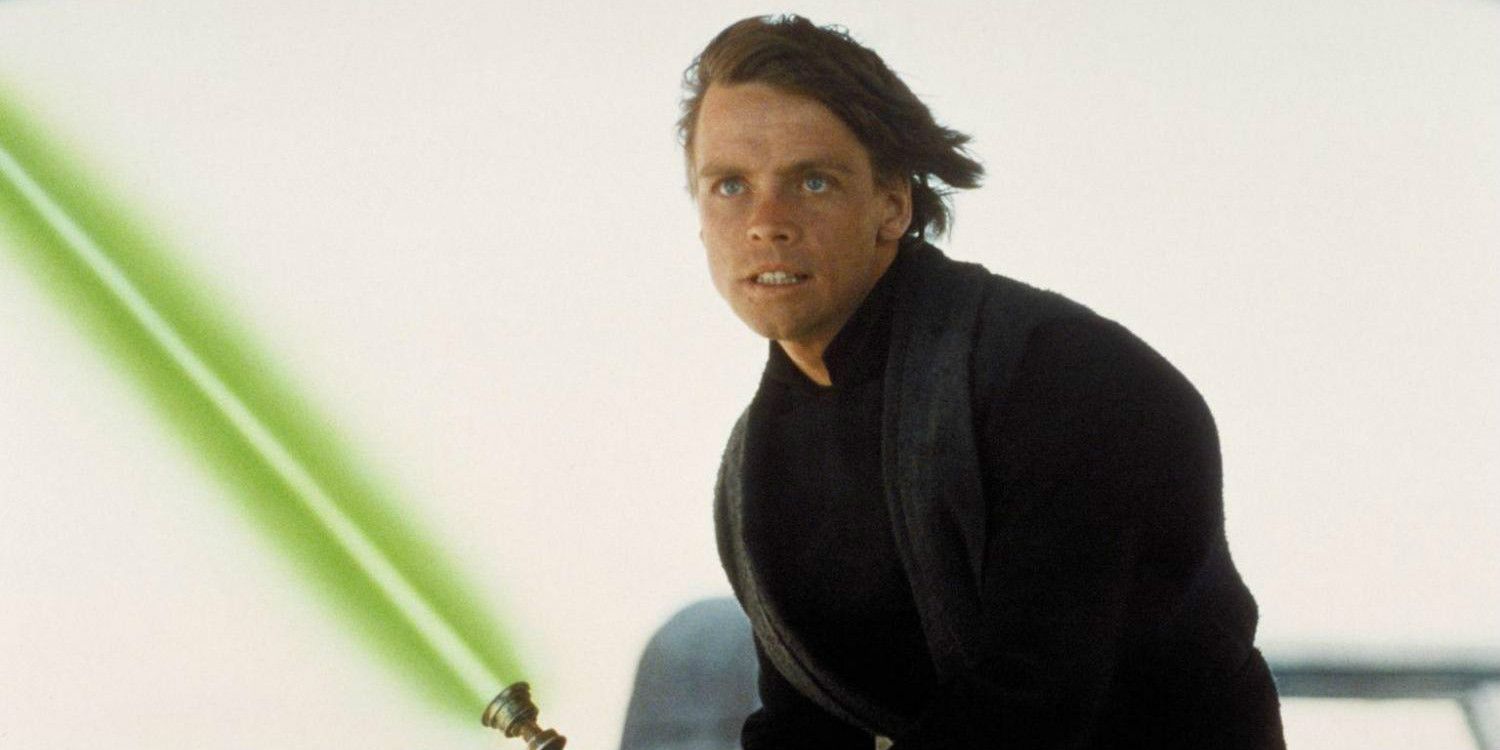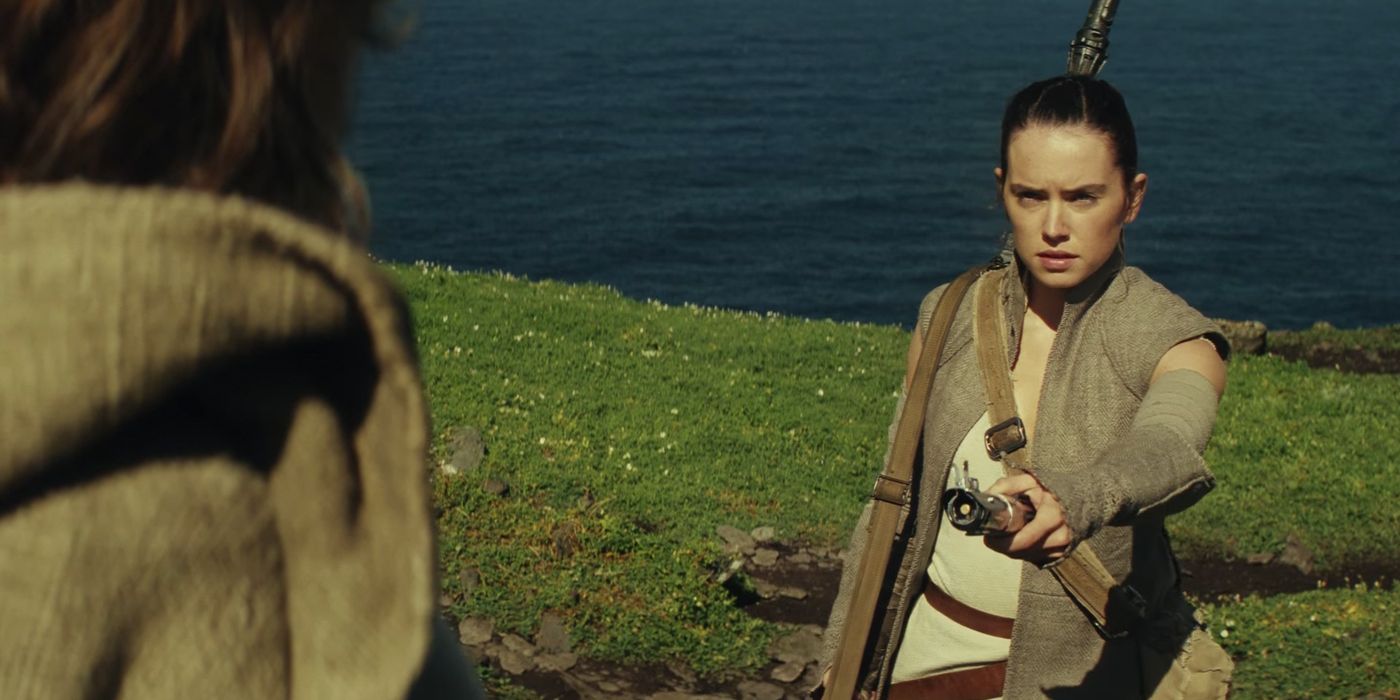The announcement that Star Wars Episode VIII is going to be titled The Last Jedi has reignited the Star Wars speculation machine with Force. Is Luke the last Jedi? Is Rey? Is it Kylo Ren? Or does it mean Jedi in the plural sense? What it means exactly is up in the air and likely won’t be known for sure until December 15th, but one thing’s for certain: whether he’s the title character (again) or not, Luke Skywalker is going to be pivotal.
Ever since the missing Knight stared morosely at Rey and Mark Hamill earned the easiest paycheck of his career, speculation about Luke's place in the galaxy and what he's done in the decades between trilogies has been rife, and this reveal has blown things open. He's been described as the “Last Jedi” three times previously – by Yoda on his deathbed Return of the Jedi, in Star Wars: The Force Awakens' opening crawl, and by Snoke in the movie itself – so we’re dealing with a passing of the torch, a tragic end of the Order, or something equally as seismic.
One of the most nuanced theories, one that ties into the wider state of galactic politics and the Force, is the advancement of a long-held idea: Luke is now a "Gray Jedi." It's a big concept, and one that would not only explain what's going on with his character, but also point towards where the sequel trilogy is going.
What Is A Gray Jedi
A Gray Jedi is traditionally a Force user who distances themselves from the main Jedi Order and instead walks the line between the Light and Dark sides. The concept currently only exists in non-canon Legends material, and even then is well outside the time period of the films themselves – it was introduced in Knights of the Old Republic, set 4000 years before A New Hope and was then reused in the comic run Legacy, set 100 years after. Several other characters who fit the mold from the movie-era Expanded Universe were retconned to be Gray Jedi later on, but were never originally stated as such.
The theory holds that Star Wars: The Last Jedi will show Luke Skywalker having moved away from belief in the standard Jedi/Sith dichotomy. We know he's failed to bring back the Jedi (something Han states he holds himself responsible for) and has gone in search of the first Jedi Temple, possibly in an attempt to get to the core of what the Order stands for. The theory suggests that his extended exile is a result of revoking the Jedi and the Light to embrace the "Gray."
It’s important to note here that the Jedi have always been presented as somewhat ideologically broken. The original trilogy had them hiding secrets from Luke and imploring him to kill his father with no consideration for redemption, and the prequels reestablished them as dogmatic, short-sighted monks unable to comprehend the Sith’s bigger scheme. The point all along has been to highlight how their rigid organization limits exploration of the Force. A logical conclusion of this thread would be for Luke to have done away with the flawed structures of the past and find a new middle-ground to the Force; thus, The Last Jedi will quite literally show the end of the Jedi.
The Case For
However it’s actually executed, there’s a lot of weight to the idea. It clears the Jedi/Sith deck, something that has become so convoluted by the prequels, and allows Disney to lay out a whole new method for Force usage. The Force was always more than just the two Orders and the Gray Jedi is a way to bring the presentation in the movies explicitly closer to that.
It could also see the series become a greater cohesive whole, with the less well-regarded prequels subtly linked in; by all accounts, Anakin did bring balance to the Force in Return of the Jedi, destroying the Sith and leaving only two people who crucially had experience with both the Light and Dark. It could be that continuing the Jedi was impossible because of Vader's completion of Episode I's prophecy, making the events of the sequel trilogy all a systemic problem of Luke being unable to move on from the past. That's a pretty tight overarching story.
And, on a more tangible level, it makes the Force unknown again, returning the wide-eyed wonder of Star Wars after heavy levels of over-explanation. That would also give the new trilogy fresh ground to explore – one of the major criticisms of The Force Awakens was how it stuck close to formula with little in the way of expansion, something rebooting the Jedi would definitely address.
The Case Against
For all the advantages, however, there’s a lot working against the mere notion of Gray Jedi, let alone it being brought to life in the films. For starters, the spiritual arguments are rooted mainly in the non-canon, never-movie-era stories, with next to nothing in the films themselves to back them up. Lucasfilm Story Group member and all-round Star Wars canon expert Pablo Hidalgo even tweeted out about the Gray Jedi concept, saying that he just doesn't get it:
I don't get the 'gray Jedi' thing. You're either a Jedi or you're not. It's like being a 'gray vegetarian' who eats meat.— Pablo Hidalgo (@pablohidalgo) January 17, 2017
Luke could have just forsaken the Jedi ways outright, but to have gone to the middle of the Force scale doesn't quite fit with his character. In Return of the Jedi he flirts with the Dark Side, but that’s shown as a binary choice, with him ultimately choosing the Light. His dark clothing and harsher personality are evidence of a moral conflict, but that’s more about presenting the arc; when he throws away his lightsaber at the end of the film, he’s fully accepting the Jedi ideology. To undo that requires a lot of off-screen rewriting, and doesn't come close to explaining why he'd be hiding out in a Jedi Temple if he's left the Order.
It’s also hard to ignore that this is essentially a toned-down variation on the "Luke’s gone to the Dark Side" theory from before The Force Awakens. Back then the notion was that he wasn’t in the marketing because he was either Kylo Ren, Snoke or some other dark figure, with the likes of Adam Driver and Andy Serkis merely serving as marketing patsies. This was obviously proven untrue, but the desire for Luke to not being the goody-goody Toschi Station obsessive we all know remains. It’s possible and something Hamill would by all accounts be game for, but feels in part to be the product of maturing fans wanting an alt-take on a classic hero rather than a serious narrative development.
Conclusion
Deep speculation about The Last Jedi at this point is hard given how little has been revealed about the film. The best way to theorize on the future is to look to the past: what ideas has Star Wars previously traded in, and what could The Force Awakens have set-up? In that regard, there’s a lot of weight to Luke being a Gray Jedi, or otherwise removed from the traditionally binary construction of the Order. Now Star Wars is more than just "The Tragedy of Darth Vader" it needs to take a wider focus and the changing worship of the Force, something Anakin started, is a logical way forward.
Although for all it can do to make the Star Wars universe and its belief system more nuanced, introducing Gray Luke could instead be more restrictive; it’s a rather unexpected development and one that could sideline the development of Kylo Ren - who, as far as we know, is the only Skywalker of the new generation.
And talking of the young blood, perhaps we're talking about the wrong character. Luke is naturally the cause of much excitement – multiple generations have grown up with his Hero’s Journey and even though it’s almost three years since Mark Hamill was confirmed to be returning we’re yet to even hear him say a word, let alone know what he’s been up to. However, he’s not the focal point of the sequel trilogy. That’s Rey, and if there’s one thing The Force Awakens unequivocally established it’s that she is the key to the story going forward. Whatever Lucasfilm has in mind for the Jedi, the Force or indeed the galaxy hinges on her, not her (presumed) master.
If we are going to get a Gray Jedi (and it’s worth clarifying it’s a very big “if” for the reasons stated earlier) then it will surely be Rey. We saw her channel anger in The Force Awakens and her mysterious past keeps many doors open. This would make her relationship with Skywalker a warped mirror of Luke’s own with Yoda, and Kylo Ren a figure who can only be defeated with a mixture of Light and Dark.
Or it’s just good versus evil - nobody ever said Star Wars needed to be that complicated.

